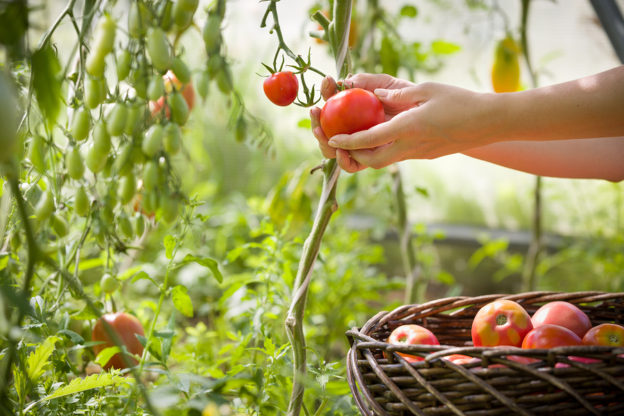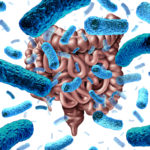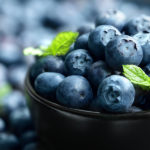By David Blyweiss, M.D., Advanced Natural Wellness
July 26, 2017
- 5 foods everyone should eat more of
- The healthiest vegetables on earth
- Don’t forget your healthy fats
When it comes to food, there’s a lot of confusion these days. I see it all of the time in my patients.
They come into my office proud of all the yogurt they’ve been eating for breakfast… the green salads at lunchtime… the lean chicken and succotash for dinner…
It sounds so healthy. But here’s the thing. When you eat a lot of the same foods day after day, you miss out on the wide array of nutrients you would get from a more varied diet.
It can actually end up being a decidedly unbalanced diet. And it could end up working against you if you’re missing out on the superfoods that protect against cancer, stroke, heart disease and other health complications.
When I explain this to my patients, they tend to have one simple question: “Well then Doc, what am I supposed to eat?”
I can’t plan anyone’s menu but my own. Still, it doesn’t mean I don’t have plenty of tips about the healthful foods that everyone should eat more of.
5 Foods Everyone Should Eat More Of
MD Exposes the Hidden Danger to Your Eyes

When your eyesight starts to fail, it's a real problem. Suddenly you can't go to the grocery store... you can't get to the doctor if you have an emergency... you can't meet your friends for dinner…
Your "regular" doctor doesn't have time to keep up with the latest research. And the same goes for eye doctors. They go to school to learn how to fit you for glasses and contacts, but have no way of preventing the damage and loss of eyesight that threatens your freedom and independence.
Let me show you something that explains a LOT about how your eyes work.
In my FREE Special Report, I'll show you a HUGE, untapped resource for your eyes that safely and naturally restores clear, effortless eyesight.
Click here to get started...
Cruciferous vegetables. Out of all the vegetables available to you, those in the cruciferous family are some of the most powerful on earth. This group of veggies contains powerful phytonutrients called sulfuraphane and indoles.
These compounds work together to…
- Protect cells from DNA damage.
- Inactivate carcinogens.
- Induce cell death (apoptosis).
- Inhibit tumor blood vessel formation (angiogenesis) and tumor cell migration (needed for metastasis).
This makes cruciferous vegetables a mighty weapon when it comes to warding off several types of cancer, including breast, prostate, colon and lung cancer.
They also reduce inflammatory factors and help lower blood sugar – which means they also protect against diabetes and metabolic syndrome.
And for men, they have a special benefit. The indole-3 found in the cruciferous vegetables converts to something called diindolylmethane (DIM) in your body. This compound works great to eliminate testosterone-zapping estrogens in men with estrogen dominance.
It’s not hard to eat more of these veggies, because there are so many to choose from. Just a few of them include organic arugula, bok choy, broccoli, Brussels sprouts, cabbage, cauliflower, collard greens, kale, mustard greens, radishes, rutabaga, turnips and watercress.
Organic berries may be another important food when it comes to cancer initiation and progression. They help keep cancer from invading your cells and spreading through your body.
Plus, the flavonoids and anthocyanins in them are are powerful anti-inflammatories.
Eating more berries can help reduce plaque in your arteries and lower blood pressure. As a matter of fact, people who eat the most anthocyanin-rich berries may experience up to a 33% reduction in their risk for a heart attack.
Plus, people who eat berries every day have brains that are about 2.5 years younger than people who don’t.
I especially like blueberries. They contain pterostilbene, an antioxidant that’s similar to resveratrol, but about four times more bioavailable. So they’re extremely potent when it comes to your anti-aging efforts.
The World's Quickest Solution for Ending Prostate and Urinary Misery
This has recently been revealed to be one of the only real breakthroughs in prostate health.
The seeds of a strange fruit (sometimes called "Chinese Apples") hold powerful phytonutrients that are a revolution in prostate health.
In fact, UCLA and Veterans Administration research have now proved this to be true.
Not only that, but it may be the worlds quickest solution for ending prostate misery.
Simply stated, these phytonutrients represent a huge step beyond beta sitosterol, saw palmetto, and other phytosterols alone.
Simply click HERE if you want to have fast prostate relief...restful, uninterrupted sleep...no more constant "urges to go"...enhanced virility...and optimal prostate support for life.
Other berries, like strawberries, raspberries and cherries don’t contain this secret ingredient. However, it doesn’t mean you shouldn’t enjoy them, too.
Tree nuts are also proven cancer fighters. But they’re best known for their heart-healthy benefits. They help boost your LDL/HDL ratio. However, that’s not their most important achievement.
You see, a substance called apolipoprotein B (ApoB) in your blood can increase the number of small, dense LDL particles you have. These are the LDL particles that greatly increase your chances of plaque build up and blockages.
Well guess what? Nuts are a perfect way to lower your ApoB levels. This, alone, will go a long way when it comes to your heart health.
Nuts can also protect against the development of type 2 diabetes and help you maintain a healthy body weight.
Try unsalted pistachios, walnuts and cashews. Almonds, pecans, macadamia and Brazil nuts are all great choices, too. Eat up to one handful (an ounce) each day. Just pop them in your mouth like you would an M&M. (Skip the peanuts. They contain aflatoxin, a natural toxin that’s not good for you.)
Don’t Forget the Healthy Fats
Omega-3 fatty acids are the ones we need the most. They’re also the ones that we typically don’t get enough of. This makes the addition of healthy, wild-caught fish an important part of your everyday life.
I can’t say enough about the importance of these vital fatty acids.
They protect your heart and brain. They cut down on inflammation. Plus, they protect and support your telomeres… the protective caps at the ends of your chromosomes that act as a “genetic clock” when it comes to how fast your body ages.
To avoid excess mercury, choose fish that are lower down on the food chain. Smaller fish like wild-caught Pacific halibut, mackerel, Alaskan salmon, sardines, herring, rainbow trout and flounder are your best bet.
Last but not least, extra virgin olive oil is a great addition to any diet. In fact, it’s so powerful that just last week I devoted an entire article to the health benefits of olive oil.
SOURCES:
Bosetti C, et al. Cruciferous vegetables and cancer risk in a network of case-control studies. Ann Oncol. 2012 Aug;23(8):2198-203.
Jiang Y, et al. Cruciferous vegetable intake is inversely correlated with circulating levels of proinflammatory markers in women. J Acad Nutr Diet. 2014 May;114(5):700-8.e2.
Axelsson AS, et al. Sulforaphane reduces hepatic glucose production and improves glucose control in patients with type 2 diabetes. Sci Transl Med. 2017 Jun 14;9(394).
Kristo AS, et al. Protective Role of Dietary Berries in Cancer. Antioxidants (Basel). 2016 Dec; 5(4): 37.
Cassidy A, et al. High Anthocyanin Intake Is Associated With a Reduced Risk of Myocardial Infarction in Young and Middle-Aged Women. Circulation. 2013; 127: 188-196.
Devore EE, et al. Dietary intakes of berries and flavonoids in relation to cognitive decline. Ann Neurol. 2012 Jul;72(1):135-43
Del Gobbo LC, et al. Effects of tree nuts on blood lipids, apolipoproteins, and blood pressure: systematic review, meta-analysis, and dose-response of 61 controlled intervention trials. Am J Clin Nutr. 2015 Dec;102(6):1347-56.
Jackson CL, et al. Long-term associations of nut consumption with body weight and obesity. Am J Clin Nutr. 2014 Jul;100 Suppl 1:408S-11S







